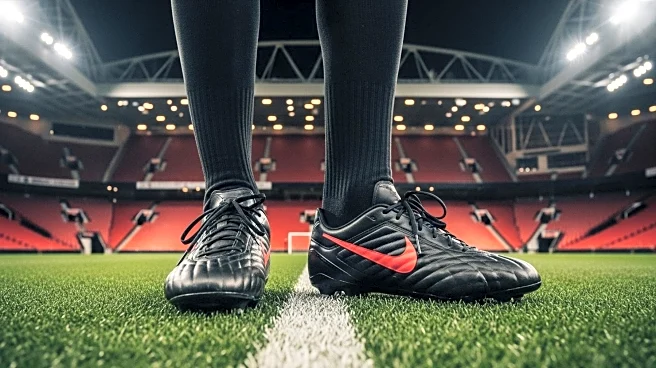What's Happening?
Manchester United's women's team is preparing for a potentially historic season as they aim to participate in their first European group stage campaign. The team must first overcome the challenge of facing Norwegian league leaders, Brann. Despite securing two new signings, Fridolina Rolfö from Barcelona and Julia Zigiotti Olme from Bayern Munich, the squad appears thin, particularly in defense and forward positions. The club has not matched the spending power of rivals like Arsenal and Chelsea, focusing instead on economic sustainability. Manager Marc Skinner, the longest-serving current manager in the Women's Super League, has led the team to three consecutive FA Cup finals, winning one. However, the team faces challenges in maintaining competitiveness both domestically and in Europe.
Why It's Important?
The developments at Manchester United's women's team highlight the growing competitiveness and financial dynamics within women's football. The club's focus on economic sustainability contrasts with the significant investments made by rivals, which could impact their ability to compete for major trophies. The arrival of high-profile players like Fridolina Rolfö could enhance the team's performance, but the lack of depth may hinder their ability to juggle domestic and European commitments. This situation underscores the broader challenges faced by women's teams in balancing financial constraints with competitive ambitions, potentially influencing future investment strategies in women's sports.
What's Next?
Manchester United will continue to seek additional signings to bolster their squad before the transfer window closes. The team's performance in upcoming European qualifiers will be crucial in determining their participation in the group stage. Success in these matches could enhance their reputation and attract further investment. Meanwhile, the club's management will need to address fan concerns regarding spending and competitiveness, potentially influencing future financial strategies. The team's ability to maintain a top-three position in the Women's Super League will be closely watched as they navigate these challenges.
Beyond the Headlines
The situation at Manchester United reflects broader trends in women's sports, where financial sustainability and competitive success are often at odds. The club's approach may influence other teams to consider similar strategies, potentially leading to a shift in how women's teams are managed financially. Additionally, the focus on high-profile signings like Rolfö highlights the increasing importance of star power in attracting fans and sponsors, which could drive further investment in player development and marketing within women's football.











